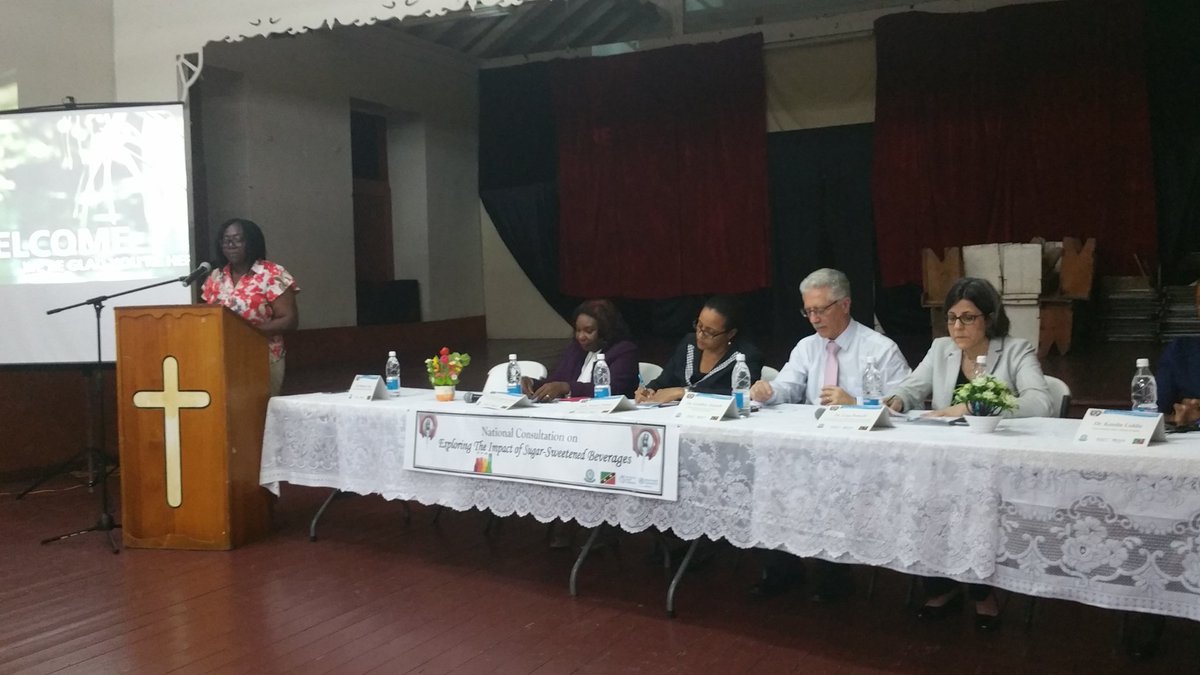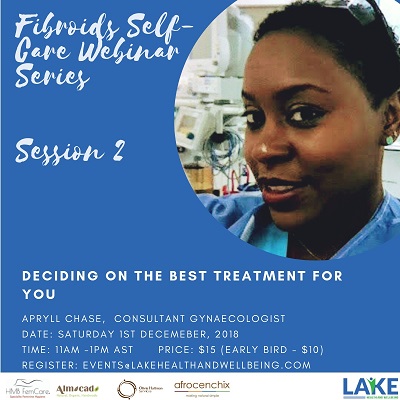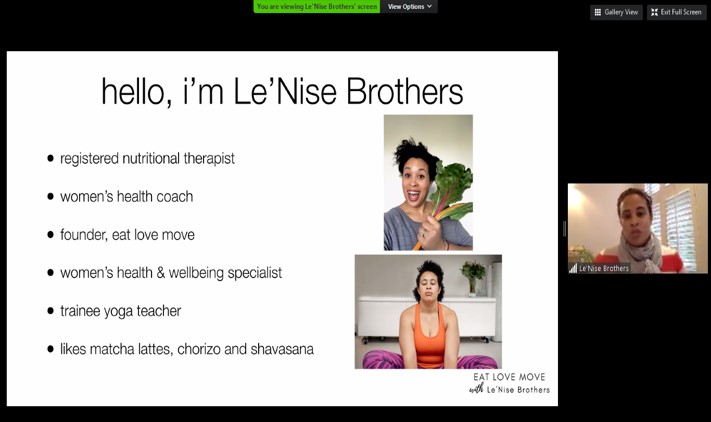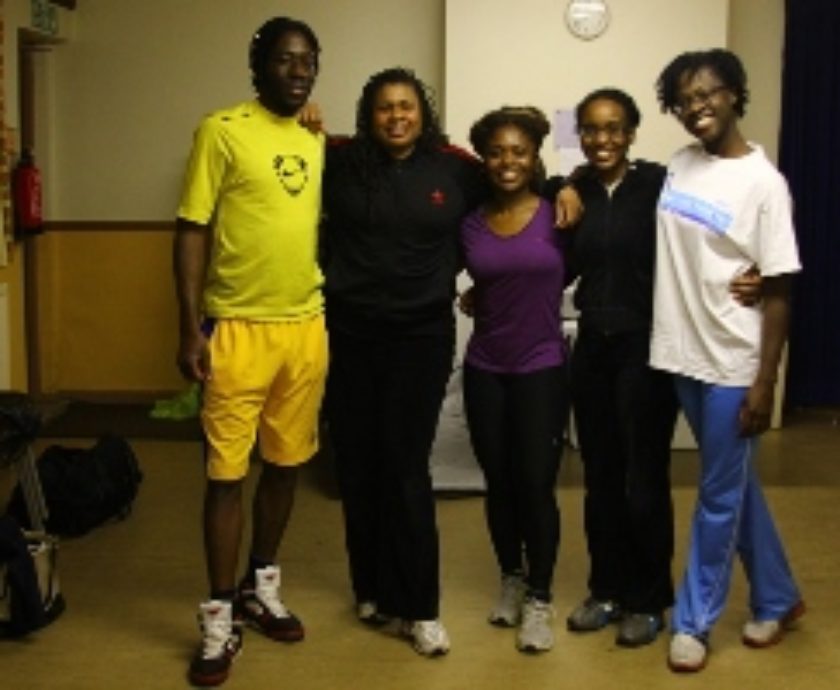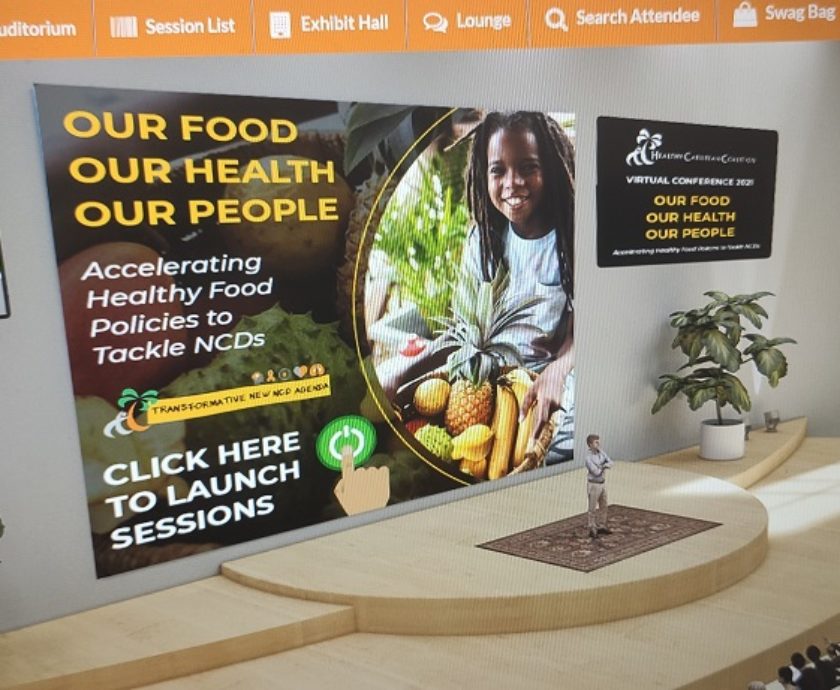On 1st November, we attended the national consultation on the impact of sugar sweetened beverages (SSBs). This event was organised by the Ministry of Health in collaboration with the Pan American Health Organisation (PAHO) as an early step towards the development of the nation’s strategy for reducing the public’s consumption of SSBs.
The Ministry’s strategy for SSBs forms just a small part of their non-communicable disease (NCD) prevention plan which outlines actions that are needed to create a healthy environment and promote exercise.
Speakers Set the Scene
During the consultation we heard from an excellent panel of speakers which included:
- Mrs Delores Stapleton-Harris, Permanent Secretary, Ministry of Health
- Hon Wendy Phipps, Minister of State with Responsibility for Health, Community Development, Social Services and Gender Affairs
- Dr Godrey Xuereb, PAHO/WHO Representative for Barbados and the Eastern Caribbean
- Dr Keisha Liddie, District Medical Officer
- Dr Lisa Powell, Professor and Director of Health Policy and Administration, School of Public Health, University of Illinois
- Dr Marissa Carty, NCD Coordinator, Ministry of Health
Together the panel outlined the need for the development of a strategy on SSBs, reminding the audience that in St Kitts and Nevis NCDs, such as diabetes, cancer, heart disease and high blood pressure, are a major health challenge with 83% of deaths in the Federation being attributed to these conditions.
Hon Phipps described how NCDs are not only a threat to the health of the nation but are a significant socio-economic issue. Whilst Dr Xuereb provided information on the need for a SSB policy stating that it is just one of many strategies to improve the health of a nation and help countries achieve the sustainable development goal (SDG) on health. He stated that in order to achieve the SDG on health it is important to focus on improving the health of children as currently, in the Caribbean, childhood obesity is very common and is a major factor in children developing NCDs. He explained that what is driving NCDs is the increased consumption of sugar, and the major source of sugar is SSBs – SSBs make up 40% of children’s sugar intake with 70% of children in the Caribbean drinking one or more SSBs per day. He stated that data from Barbados, Mexico and Chile has shown that increasing the cost of SSBs through taxation has reduced the consumption of SSBs and therefore this is an effective strategy in tackling NCDs.
We also heard from Dr Keisha Liddie who presented a very in-depth and comprehensive situational analysis of St Kitts and Nevis. Dr Liddie described the data and trends for NCDs in the Federation showing the increase in the incidence of specific NCDs year on year and their impact on the nation. Finally, Dr Powell explored the economics, practicalities and important considerations when introducing a tax on SSBs and provided a number of recommendations which included:
- Implement a 20% SSB tax
- Include all forms of SSBs in the taxation strategy e.g: soda, energy drinks, sports drinks, fruit drinks, sweetened teas/coffees, sweetened water and beverage powders/syrups). Exclude zero calorie beverages
- Apply the tax to all imported and domestically produced SSBs
- Earmark the tax revenue for public health initiatives with an emphasis on nutrition and physical activity
- Carry out public awareness and education to inform the public about the SSB tax and its objectives
- Ban the sale of SSBs in schools
- Ban the sale of SSBs in hospitals and government buildings
- Regulate the marketing of SSBs in and around schools
- Develop a drinking water infrastructure in schools that provide reusable water bottles to school children
- Provide local agricultural products as snacks in schools
- Promote the implementation of school gardens as a learning tool and to improve access to fruits and vegetables
- Explore appropriate sponsors for youth sports that align with the objectives of improving health
- Provide funding to increase activity spaces
St Kitts and Nevis’ Proposed Approach to SSBs
Dr Marissa Carty outlined the Ministry’s initial ideas on their approach to reducing the consumption of SSBs and gave the audience the opportunity to provide feedback on all the policy areas. The Ministry’s proposed policy imperatives include:
- A 40% tax on SSBs (update: the proposed tax is now 32%)
- The tax will apply to calorically sweetened beverages including carbonated drinks (sodas), sweetened carbonated water, sugar sweetened juices, sports drinks, energy drinks, tea and coffee drinks, sweetened milk/milk alternatives, milk powdered blended drinks, powdered drink mixes and drink mix syrups
- Sugar would no longer be zero rated when it comes to tax
- Excluded from the tax would be: fresh fruit juice (no sugar added), unsweetened milk/milk alternatives, infused water, unsweetened carbonated drinks and non-caloric sweetened drinks
- Alternatives to SSBs will be suggested to the public. These would include: fruit/vegetable infused water unsweetened water, plain water, unsweetened carbonated water, unsweetened herbal (bush) tea and artificially non-caloric sweetened beverages
- The tax revenue will be used to provide: a water infrastructure, water fountains in schools, reusable water bottles in schools, healthier school meals, public health campaigns, National Health Insurance, implementing a marketing ban to children and policy development for safe school zones.
Our Thoughts
We 100% support the government’s approach to SSBs as there is a need to tackle childhood obesity in St Kitts and Nevis and by reducing SSB consumption this can be achieved.
We believe a 40% (or 32%) tax is sufficiently high enough to deter consumption of all SSBs, anything lower than this could lead to consumers simply replacing expensive SSBs for more affordable SSBs. There was some evidence of this in Barbados where the tax is 10% and this suggested that this level of taxation wasn’t high enough to deter consumers from buying the lower priced SSBs.
We think it is important that the revenue raised from the SSB tax should fund public health initiatives particularly those that are aimed at childhood obesity and so we applaud the Ministry’s suggestions on the use of the tax revenue. We would also like to see the tax revenue being used to make healthy foods more affordable to ensure that parents and guardians don’t encounter any barriers to adopting healthy eating practices. It is also important for there to be full transparency on the expenditure of the tax revenue so that the public can be confident that the funds have been used to benefit the public’s health.
Next Steps
The Ministry of Health will collate the feedback received from this consultation as well as the consultation conducted in Nevis and continue to engage with key stakeholders to develop their SSB policy. This will then have to be approved by Cabinet.
We look forward to seeing this policy develop and will support the Ministry in any way that we can to see this policy developed, approved and implemented.







